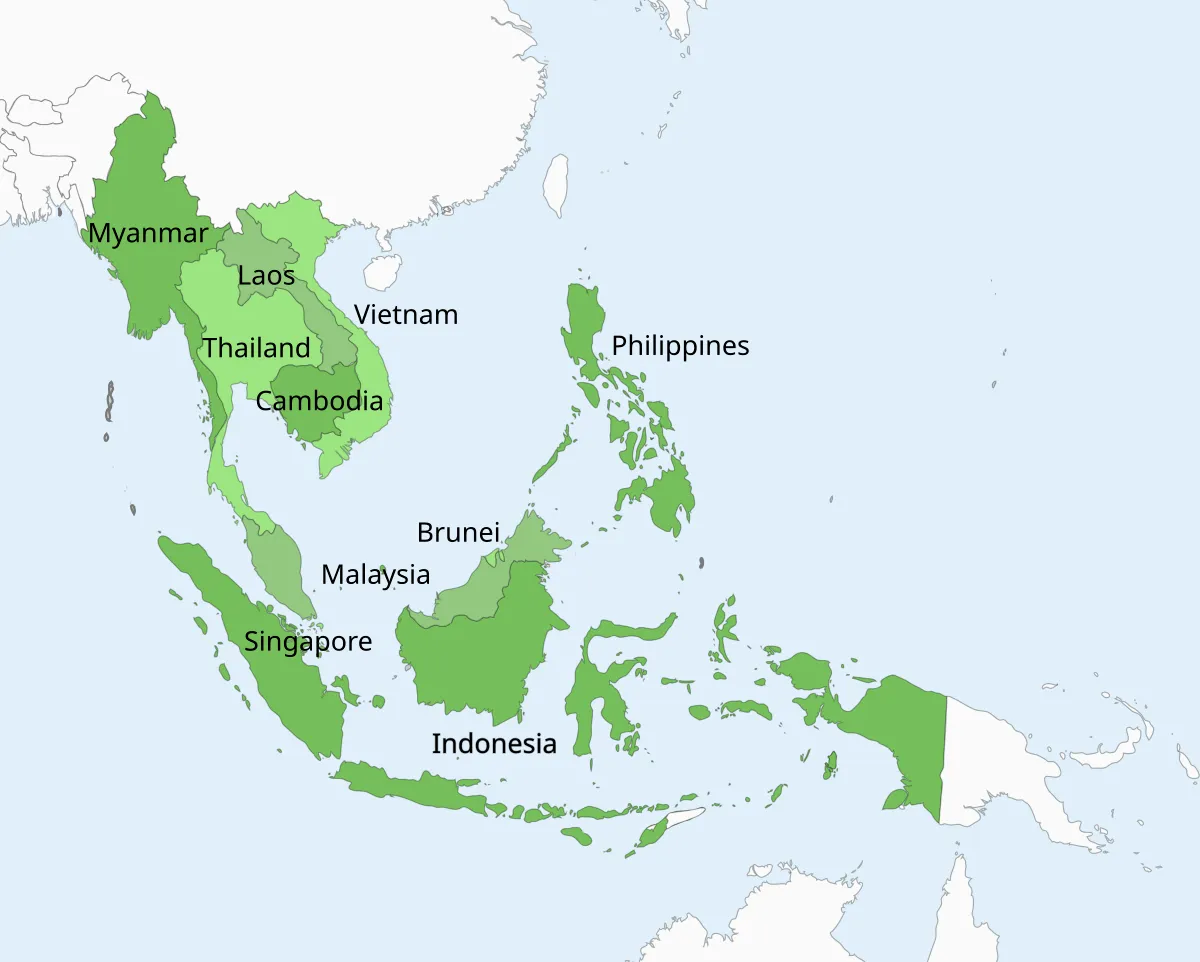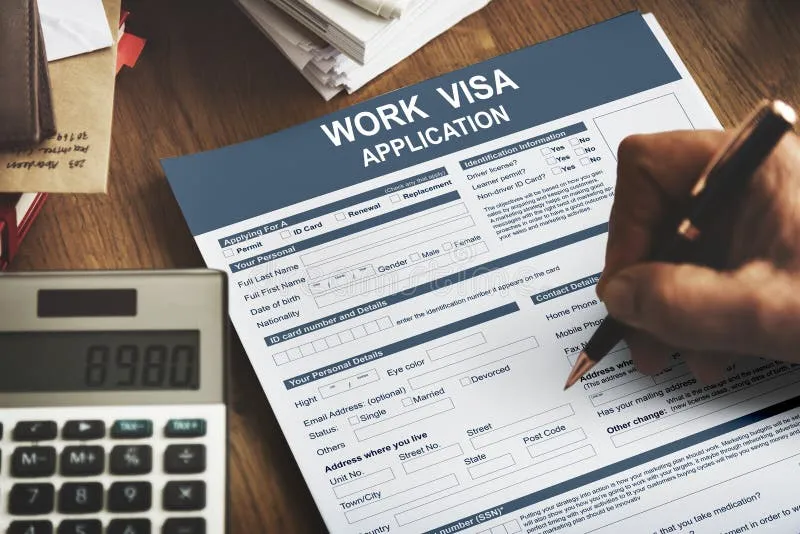Mekari Insight
- With a growing population, robust GDP, and rising FDI, Indonesia offers a powerful mix of market size, regional access, and government incentives. It’s a prime destination for global companies looking to expand in Southeast Asia.
- From a fully operational PT PMA to a non-commercial Representative Office, the right structure depends on your goals. Foreign companies must comply with capital, licensing, and staffing regulations — all within Indonesia’s legal framework.
- Post-relocation success depends on managing permits, tax, HR, and reporting efficiently. Mekari’s suite of localized SaaS tools helps you stay compliant, reduce operational friction, and grow your business confidently in Indonesia.
Thinking about relocating a foreign company to Indonesia? You’re in good company.
With foreign direct investment (FDI) surging 12.7% year-on-year to IDR 230.4 trillion (~$13.67 billion) in Q1 2025, Indonesia is quickly becoming a hotbed for global companies seeking new opportunities in Southeast Asia.
But before you make the leap, there’s a roadmap to follow. Here’s a practical checklist and step-by-step guide to help you relocating a foreign company to Indonesia smoothly and legally into Indonesia’s dynamic market.
Why relocate your business to Indonesia?
Relocating a foreign company to Indonesia offers strategic advantages across market access, regional positioning, and regulatory support.
1. Large and growing market
Indonesia offers one of the largest consumer markets in the world, driven by strong population and economic growth.
- Population size and growth: As of 2024, Indonesia’s population reached 283.5 million and is projected to increase to 285.7 million in 2025, growing at a rate of 0.82% annually (Worldometer, 2025).
- Economic growth: Indonesia’s GDP grew by 5.03% in 2024, maintaining strong momentum from the previous year’s 5.05% (BPS-Statistics Indonesia, 2025).
This combination of demographic strength and purchasing power makes Indonesia a highly attractive destination for foreign companies seeking market expansion.
Read more: Top 10 Fastest-Growing Industries in Indonesia (2025 Edition)2. Strategic Southeast Asia hub

Located in the heart of ASEAN, Indonesia provides direct access to a fast-growing regional economy.
- Regional connectivity: As a member of ASEAN, Indonesia benefits from regional integration, reduced trade barriers, and improved logistics.
- ASEAN economic outlook: The region posted 4.0% growth in 2023 and is expected to grow by 4.7% in 2024 and 2025 (ASEAN Economic Outlook, 2024).
These strategic advantages position Indonesia as a regional hub for both market access and supply chain operations across Southeast Asia.
3. Government support and investment incentives
Indonesia has demonstrated a strong commitment to attracting and supporting foreign direct investment through policy reforms and fiscal incentives.
- FDI realization: In Q1 2025, foreign direct investment (excluding finance and oil & gas) grew by 12.7% year-on-year, reaching IDR 230.4 trillion ($13.67 billion). For the full year 2024, total direct investment reached IDR 1,714.2 trillion ($105.13 billion), an increase of 20.8% (Trading Economics, 2025).
- Global competitiveness: Indonesia rose to 27th place in the IMD World Competitiveness Ranking 2024, up from 34th in 2023, due to improvements in government and business efficiency (Jakarta Post, 2024).
- Investment incentives:
- 30% corporate income tax reduction over six years for eligible investments
- 5 to 20-year tax holidays (up to 25 years in Special Economic Zones)
- Up to 300% tax deductions for R&D and 200% for vocational training
- Import duty exemptions on capital goods for production
Read more: Indonesia Corporate Income Tax Guide: Rates, Incentives & DeadlinesChoosing the right legal entity
Choosing the right legal entity depends on your industry, objectives, and readiness to invest.
1. PT PMA (Perseroan Terbatas Penanaman Modal Asing)
The PT PMA is the most commonly chosen entity by foreign investors. It’s a full-fledged limited liability company designed specifically for foreign ownership and operation in Indonesia.
Why PT PMA?
- It allows up to 100% foreign ownership in many sectors (subject to the Positive Investment List).
- It is a separate legal entity, which limits liability and enhances business flexibility.
- Offers access to commercial activities, including issuing invoices, hiring employees, and earning revenue.
Key requirements:
- Minimum investment plan of IDR 10 billion (~USD 633,000), excluding land and buildings.
- At least one resident director, along with a commissioner and shareholders.
- Must be registered through the OSS (Online Single Submission) system.
This structure is ideal for companies looking to operate long-term, engage in direct trade, or fully establish a brand presence in Indonesia.
2. Branch office
A branch office is simply an extension of the foreign parent company and is not a separate legal entity in Indonesia. It’s suitable only for certain regulated sectors.
Key characteristics:
- Full liability remains with the parent company.
- Limited to specific sectors such as:
- Construction
- Oil and gas
- Banking and finance
- Operations are often subject to strict regulations and approval from relevant authorities.
This structure is ideal if you are entering highly regulated industries and already have a licensed global presence.
3. Representative office (Kantor Perwakilan / RO)
A Representative Office (RO) offers a way to explore the Indonesian market without committing to full-scale operations. However, ROs cannot engage in direct commercial activities.
General features of ROs:
- No requirement for paid-up capital.
- Cannot issue invoices, generate revenue, or sign contracts.
- Intended for research, liaison, and preparation for full market entry.
There are four types of Representative Offices, each tailored to specific sectors:
a. General Representative Office (KPPA)
Ideal for early-stage market exploration.
- Functions to represent and supervise the parent company.
- Must be located in an office building in the provincial capital.
- Valid for 3 years, with two possible 1-year extensions.
- Cannot conduct commercial activities.
b. Foreign Trading Company RO (KP3A)
Best suited for manufacturers or product owners.
- Acts as a liaison or promotional agent, not a sales entity.
- Can be set up outside provincial capitals.
- Requires a Foreign Company Trade Representative License (SIUP3A).
- License duration: from 2 months (temporary) to 1 year (renewable).
c. Foreign Construction Company RO (BUJKA)
For foreign construction firms partnering with Indonesian companies.
- Can engage in projects only through joint ventures.
- Requires a license from LPJK and the Ministry of Public Works.
- Must prove status as a large-scale contractor.
- License valid for 3 years.
d. Foreign Oil and Gas RO (KPPA MIGAS)

Designed for upstream oil and gas companies.
- Requires BKPM approval.
- Valid for 3 years.
- Strictly for liaison and coordination—not commercial operations.
Key requirements for relocating foreign company to Indonesia
To help you determine the most suitable legal structure for your business, here’s a side-by-side comparison of key requirements for each entity type commonly used by foreign companies relocating to Indonesia: PT PMA, Representative Office, and Branch Office.
| Requirement | PT PMA | Representative Office | Branch Office |
| Minimum Capital | IDR 10 billion (approx. USD 633,000) | Not required | No fixed rule (varies by industry) |
| Corporate Officers | ≥1 resident director and a commissioner | Resident Chief Representative Officer (CRO) required | Resident representative required |
| Ownership | Can be 100% foreign-owned (some sector limits) | Not a separate legal entity | Extension of the parent company |
| Business Activities | Broad range of commercial activities allowed | Limited to non-commercial (e.g., research, liaison) | Limited to specific sectors (e.g., oil & gas) |
| License Duration | Unlimited | 3 years, renewable | Dependent on project or contract duration |
Read more: Business Expansion to Indonesia: 8 Reasons & Complete StrategyRelocating a foreign company to Indonesia: step-by-step process
The process of relocating a foreign company to Indonesia is manageable with the right preparation.
Below is a step-by-step guide, particularly for those establishing a PT PMA, the most flexible entity for foreign ownership in Indonesia.
1. Reserve and approve your company name
The journey begins with naming your business. You’ll need to reserve a unique company name with the Ministry of Law and Human Rights.
- The name must contain at least three words, be distinct, and not resemble existing companies.
- For PT PMA entities, the name can be in English or another foreign language.
2. Prepare legal documents and get government approval
Once the name is secured, it’s time to establish your company legally.
- Draft a Deed of Establishment through a notary, which includes:
- The Articles of Association
- Shareholder and management details
- Review the Positive Investment List to check sector eligibility and restrictions.
- Submit the documents to the Ministry of Law and Human Rights for legalization.
3. Fulfill capital requirements
Indonesia requires foreign-owned companies to commit to a solid investment foundation.
- PT PMA must have a minimum investment plan of IDR 10 billion (~USD 633,000).
- A paid-up capital of at least IDR 2.5 billion (~USD 178,000) is also required before starting operations.
4. Register and license your business
After your legal structure is approved, you must register the company officially and obtain the necessary licenses.
- Register through the OSS (Online Single Submission) system to receive a Business Identification Number (NIB).
- Apply for industry-specific business licenses and permits.
- Obtain a Tax Identification Number (NPWP) and register for social security programs (BPJS) if hiring staff.
5. Appoint key corporate officers
Every entity must have clearly defined roles in compliance with Indonesian corporate law.
- A PT PMA requires at least one resident director and one commissioner.
- A representative or branch office must appoint a local resident representative.
6. Arrange visas and work permits for foreign staff

If you plan to bring in foreign professionals, securing legal work status is essential.
- Apply for RPTKA (Expatriate Placement Plan) approval from the Ministry of Manpower.
- Obtain the IMTA (Work Permit).
- Apply for VITAS (Limited Stay Visa) and convert it to KITAS (Temporary Stay Permit) upon arrival.
Read more: 10 Things you Should Know Before Doing Business in IndonesiaPost-relocation compliance and operations
Once your company is established in Indonesia, the work doesn’t stop there. Ensuring ongoing compliance and setting up day-to-day operations are just as important as the initial registration process.
These post-relocation steps help avoid legal pitfalls, support sustainable business growth, and create a stable foundation for your team.
1. Register the company before operating
No foreign business can legally operate in Indonesia without full registration. For a PT PMA, the following documents and steps are required to finalize incorporation:
- Company name reservation via the Ministry of Law and Human Rights
- Notarized Deed of Establishment, approved by the Ministry
- Domicile certificate from local authorities
- Tax ID number (NPWP) and Business Identification Number (NIB) through the OSS system
- Sector-specific licenses, such as trading, manufacturing, or construction permits, depending on your industry
These steps ensure your business is officially recognized, licensed, and compliant with national regulations.
2. Understand and comply with Indonesian corporate and investment law
Operating in Indonesia means staying aligned with its legal framework, which governs how companies invest, grow, and interact with the local market.
- Law No. 40/2007 governs limited liability companies (PT)
- Law No. 25/2007 sets the investment framework for foreign and domestic businesses
- Presidential Regulation No. 10/2021 (Positive Investment List) outlines which sectors are open to foreign ownership
- The Job Creation Law (Omnibus Law) simplifies business licensing and streamlines regulations
3. Arrange residency and permits for foreign staff
If you’re relocating key personnel, proper immigration documents are required before they can work or reside in Indonesia. These include:
- RPTKA (Foreign Manpower Placement Plan) – employer-based approval
- IMTA (Work Permit) – allows foreign nationals to be legally employed
- VITAS (Limited Stay Visa) – entry visa for work purposes
- KITAS (Limited Stay Permit) – the primary residence permit
- MERP – needed for multiple exits and entries while holding a KITAS
- KITAP – long-term residency permit available after extended stay
4. Engage local experts for ongoing compliance and operations
Indonesia’s legal and administrative landscape can be complex—especially for foreign firms unfamiliar with local nuances. Partnering with local agencies can greatly simplify operations and ensure continued compliance.
Key benefits of working with local professionals:
- Keep up with regulatory changes in tax, labor, and environmental law
- Gain access to local networks, suppliers, and officials
- Receive support for taxation, payroll, and HR administration
- Ensure timely license renewals and avoid business disruptions
- Navigate cultural differences in communication and business etiquette
- Streamline expat management, including KITAS and work permit renewals
Read more: Payroll, Contracts & Employment Laws in Indonesia 2025Challenges and recommendations
Here are three key challenges companies often face and practical recommendations to manage each effectively.
1. The relocation process can be time-consuming
Even with recent reforms like the Online Single Submission (OSS) system, setting up a business in Indonesia can take time. The process includes legal registrations, licensing, and obtaining work permits—often stretching between 3 to 6 months, depending on the business sector and document readiness.
Challenges:
- Multi-step procedures involving different ministries (e.g., Law and Human Rights, Manpower, Immigration)
- Varying timelines across industries and local jurisdictions
- Delays due to missing documents or compliance issues
Recommendations:
- Start early by preparing all required documents in advance
- Use the OSS system to speed up core business registration
- Work with local professionals to manage follow-ups and avoid missteps
2. Sector restrictions may limit ownership or require local partners
Indonesia’s Positive Investment List outlines which industries are open to 100% foreign ownership and which ones are partially or fully restricted.
Challenges:
- Some sectors cap foreign ownership (e.g., certain logistics or healthcare services)
- Others are reserved exclusively for local MSMEs or are entirely closed to foreign investment
- When required, forming a joint venture with an Indonesian partner demands careful structuring
Recommendations:
- Check the most recent Positive Investment List before committing to any business line
- If ownership caps apply, consult legal experts to structure clear, fair joint venture agreements
- Perform thorough due diligence on potential local partners
3. Navigating regulations without local support can be risky
Indonesia’s regulatory environment is complex and constantly evolving. From tax rules to HR compliance, unfamiliarity can lead to costly errors.
Challenges:
- Language barriers and differing business norms
- Frequent updates to laws and procedures
- Local compliance areas like BPJS (social security), labor laws, and tax reporting require local expertise
Recommendations:
- Engage a local consulting firm for licensing, accounting, and operational compliance
- Hire legal counsel familiar with foreign investment, contracts, and dispute resolution
- Use HR/payroll professionals to manage labor compliance and employee benefits accurately
Relocate your business to Indonesia for lower operational costs
From affordable talent to government incentives, Indonesia gives foreign businesses the space to grow while keeping expenses in check.
But to really make it work, you need tools that help you stay efficient and compliant from day one. That’s where Mekari comes in.
Mekari empowers businesses through trusted, cloud-based SaaS solutions tailored to Indonesia’s regulatory and business environment. From accounting, marketing, to tax and HR management, Mekari helps you manage operations smoothly, stay on top of local regulations, and focus on growing your business.
Make your move smarter. Run your business easier with Mekari.

